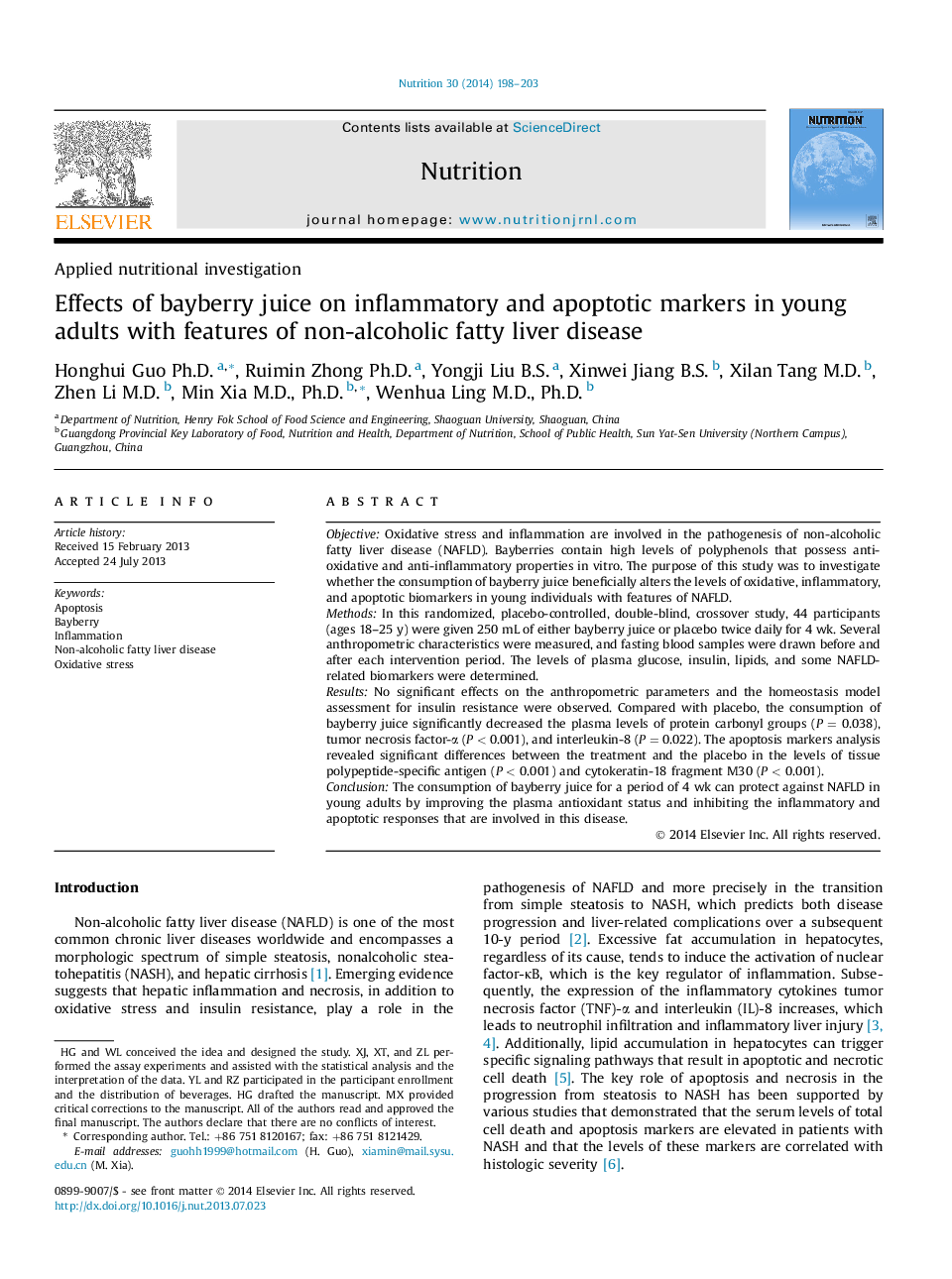| Article ID | Journal | Published Year | Pages | File Type |
|---|---|---|---|---|
| 3276394 | Nutrition | 2014 | 6 Pages |
ObjectiveOxidative stress and inflammation are involved in the pathogenesis of non-alcoholic fatty liver disease (NAFLD). Bayberries contain high levels of polyphenols that possess antioxidative and anti-inflammatory properties in vitro. The purpose of this study was to investigate whether the consumption of bayberry juice beneficially alters the levels of oxidative, inflammatory, and apoptotic biomarkers in young individuals with features of NAFLD.MethodsIn this randomized, placebo-controlled, double-blind, crossover study, 44 participants (ages 18–25 y) were given 250 mL of either bayberry juice or placebo twice daily for 4 wk. Several anthropometric characteristics were measured, and fasting blood samples were drawn before and after each intervention period. The levels of plasma glucose, insulin, lipids, and some NAFLD-related biomarkers were determined.ResultsNo significant effects on the anthropometric parameters and the homeostasis model assessment for insulin resistance were observed. Compared with placebo, the consumption of bayberry juice significantly decreased the plasma levels of protein carbonyl groups (P = 0.038), tumor necrosis factor-α (P < 0.001), and interleukin-8 (P = 0.022). The apoptosis markers analysis revealed significant differences between the treatment and the placebo in the levels of tissue polypeptide-specific antigen (P < 0.001) and cytokeratin-18 fragment M30 (P < 0.001).ConclusionThe consumption of bayberry juice for a period of 4 wk can protect against NAFLD in young adults by improving the plasma antioxidant status and inhibiting the inflammatory and apoptotic responses that are involved in this disease.
